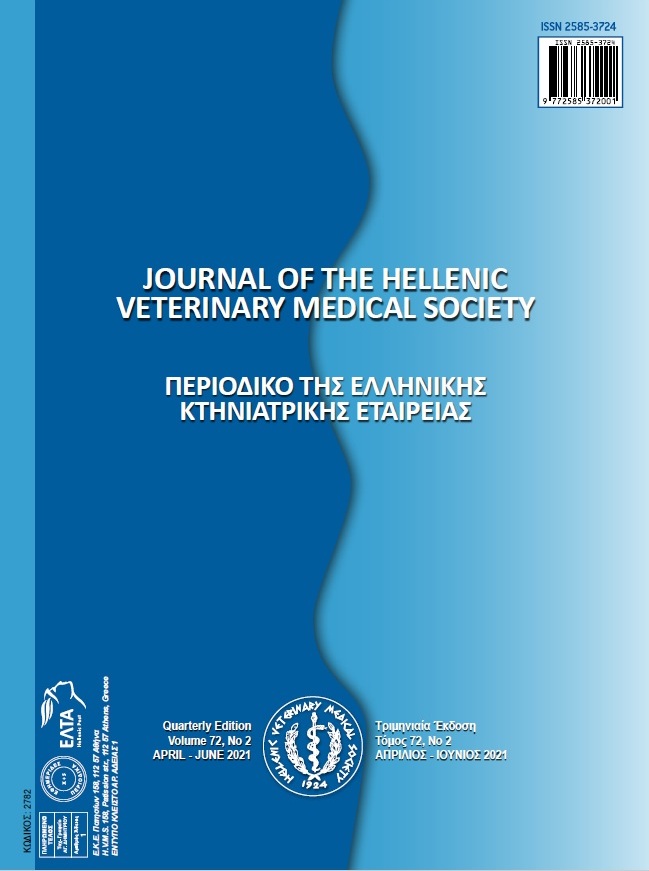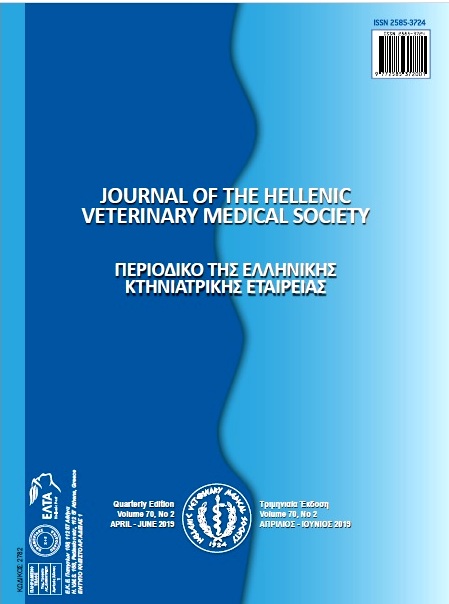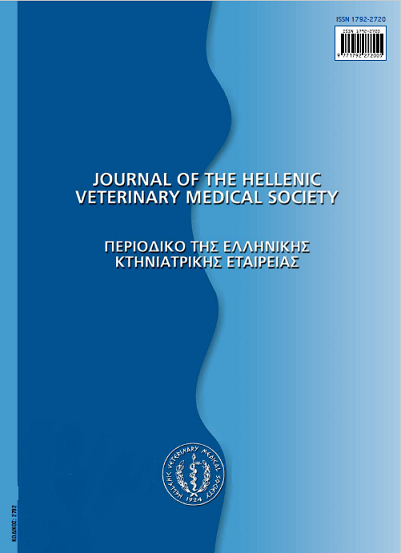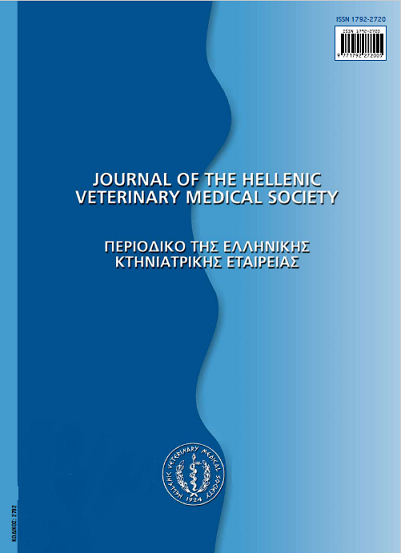Antimicrobial resistance rates in commensal Escherichia coli isolates from healthy pigs in Greek swine farms
Abstract
Antibiotic resistance undermines the possibility to effectively treat bacterial diseases in humans and animals and it is one of the major global threats for the future. Antimicrobial resistance among commensal Escherichia coli (E. coli) of swine is important because it may constitute a reservoir of antimicrobial resistance genes that could be transferred to pathogenic bacteria. This study aimed to estimate the prevalence of antimicrobial resistance among faecal E. coli from healthy weaning and growing pigs in Greek farms. From 14 farms that were enrolled to this study, 390 isolates of E. coli, 160 from growing pigs and 230 from weaning pigs had been derived. Isolates were tested for susceptibility to 19 antimicrobials belonging to 10 different classes, using disk diffusion method. Extremely high resistance rates were observed for streptomycin, tetracycline, doxycycline, trimethoprim-sulphomeathoxazole, and for the penicillins, ampicillin, ticarcillin and piperacillin. All isolates were susceptible in the combination of a penicillin and β-lactamase inhibitors, in aztreonam and extended-spectrum cephalosporins. The vast majority of the isolates (87%) were multi drug resistant (MDR) and the most common MDR patterns showed resistance in three to four antimicrobial classes. Twenty different antibiotic resistance profiles were observed, the most prevalent was chloramphenicol-trimethoprim/sulphomeathoxazole-tetracycline-doxycycline-streptomycin-ampicillin-ticarcillin-piperacillin (CHL-SXT-TET-DOX-SMN-AMP-TIC-PIP) accounting 44% of the isolates. In each farm one or two AMR profiles were predominating accounting 64-100%, while the antimicrobial resistance index (ARI) was estimated to 0.39 ranging from 0.13 to 0.48 among the studied farms. To analyse the differences observed between the farms, additional information about the antibiotic consumption and the level of biosecurity in the farms is necessary. These findings indicate that resistance to a broad range of antimicrobials was prevalent among faecal E. coli isolates of pigs on studied farms, and that this constitutes a potential reservoir for resistance genes that could spread to gut pathogens.
Article Details
- Zitationsvorschlag
-
PAPADOPOULOS, D., Papadopoulos, T., PAPAGEORGIOU, K., SERGELIDIS, D., ADAMOPOULOU, M., KRITAS, S., & PETRIDOU, E. (2021). Antimicrobial resistance rates in commensal Escherichia coli isolates from healthy pigs in Greek swine farms. Journal of the Hellenic Veterinary Medical Society, 72(2), 2909–2916. https://doi.org/10.12681/jhvms.27531
- Ausgabe
- Bd. 72 Nr. 2 (2021)
- Rubrik
- Research Articles

Dieses Werk steht unter der Lizenz Creative Commons Namensnennung - Nicht-kommerziell 4.0 International.
Authors who publish with this journal agree to the following terms:
· Authors retain copyright and grant the journal right of first publication with the work simultaneously licensed under a Creative Commons Attribution Non-Commercial License that allows others to share the work with an acknowledgement of the work's authorship and initial publication in this journal.
· Authors are able to enter into separate, additional contractual arrangements for the non-exclusive distribution of the journal's published version of the work (e.g. post it to an institutional repository or publish it in a book), with an acknowledgement of its initial publication in this journal.
· Authors are permitted and encouraged to post their work online (preferably in institutional repositories or on their website) prior to and during the submission process, as it can lead to productive exchanges, as well as earlier and greater citation of published work.






